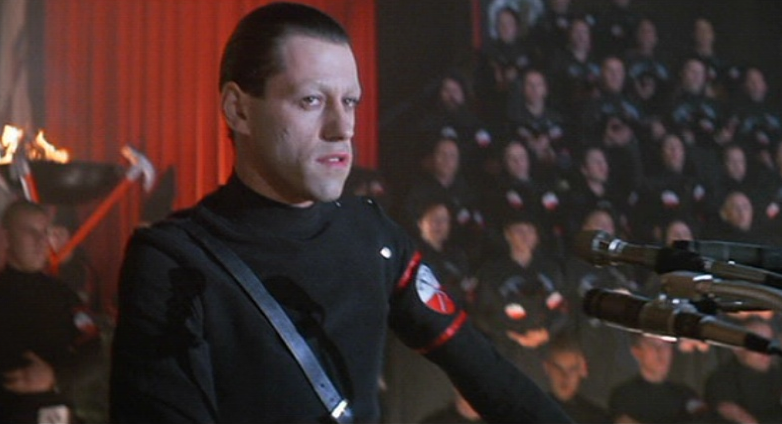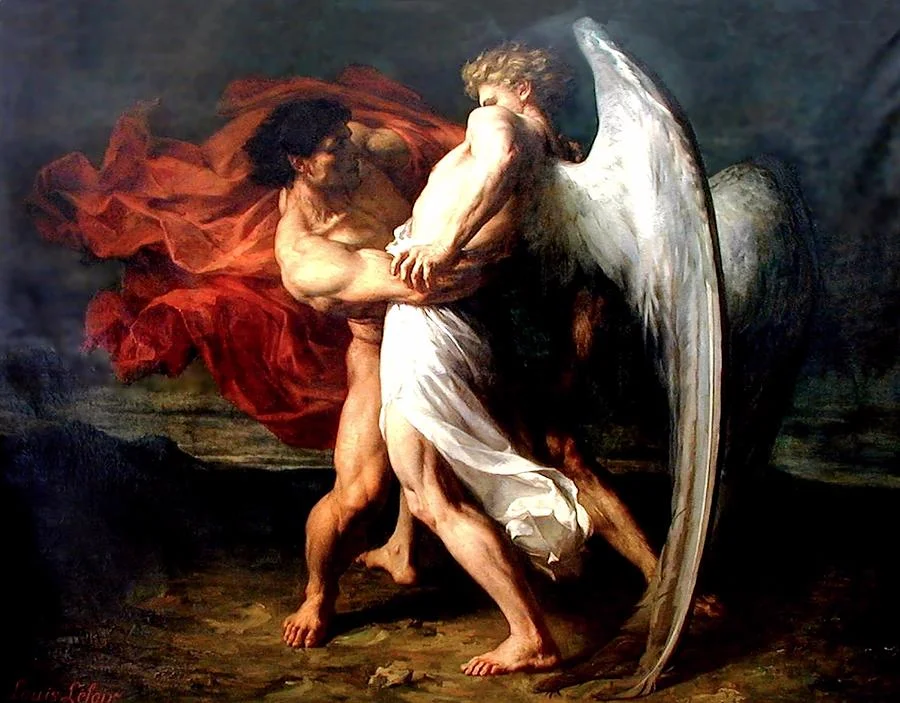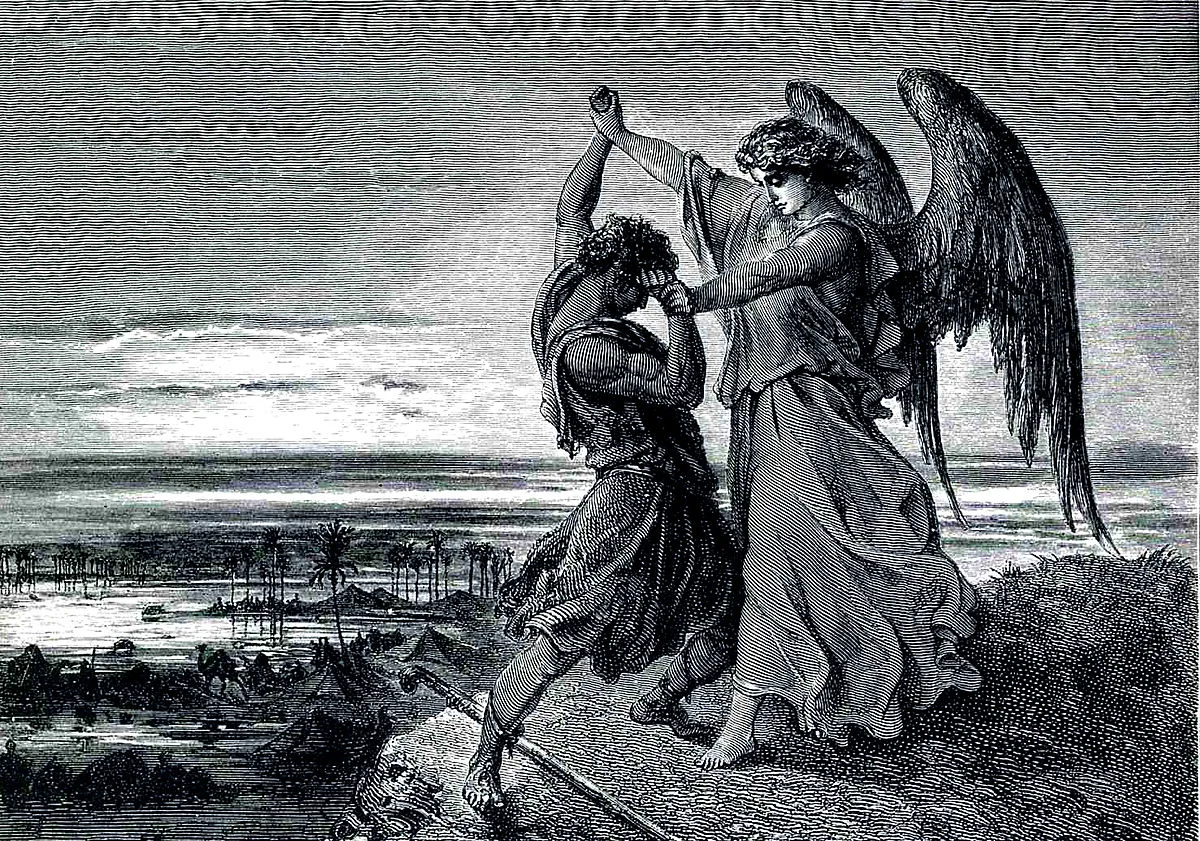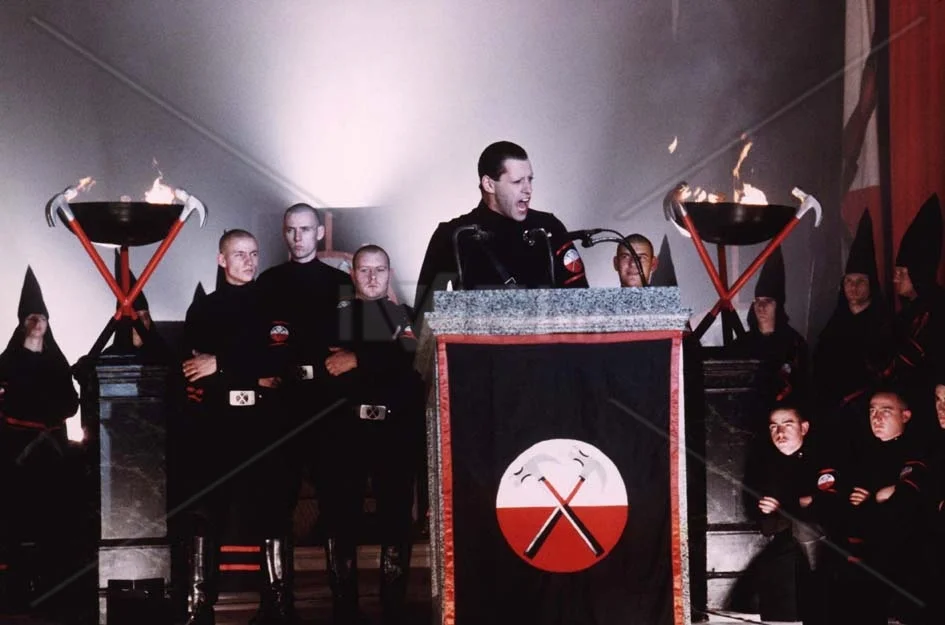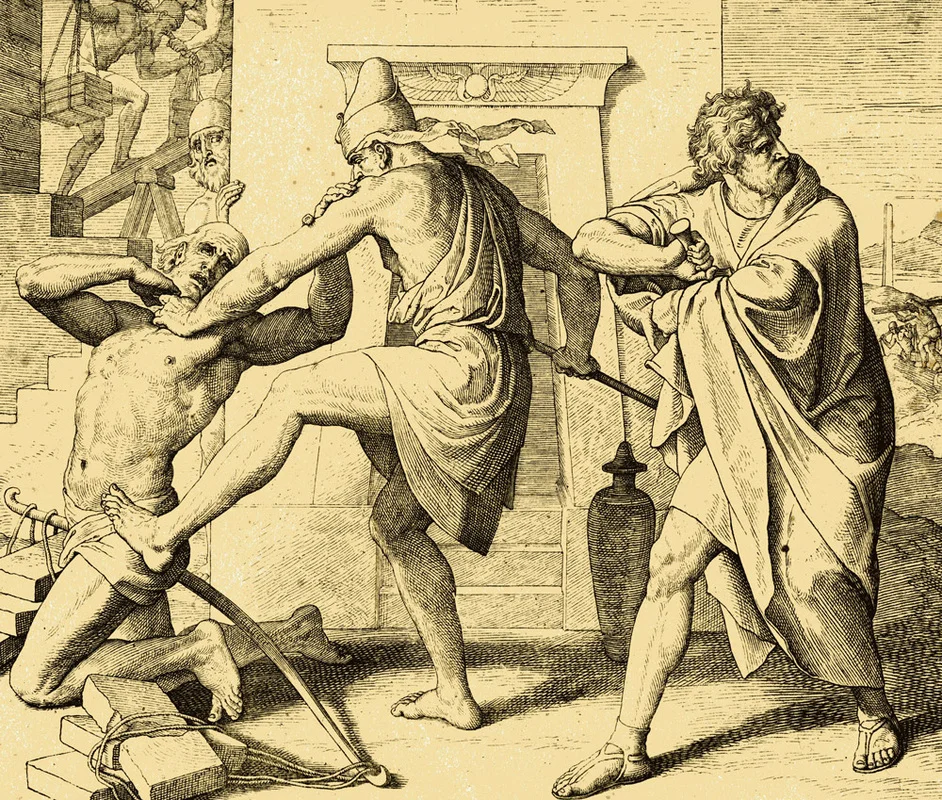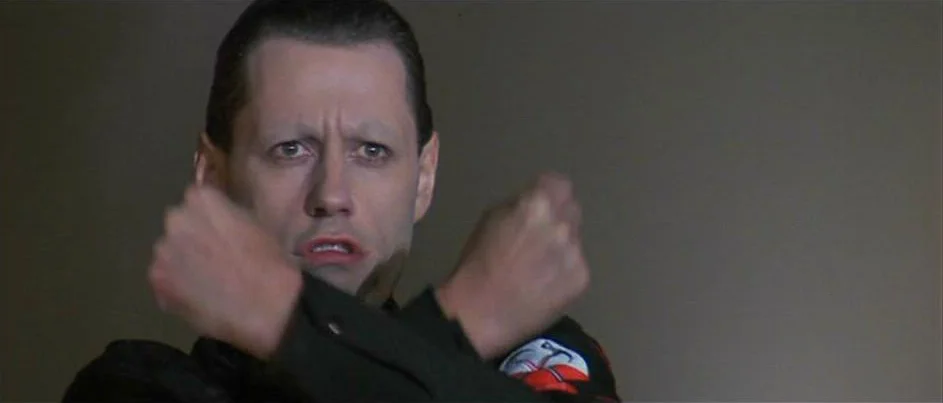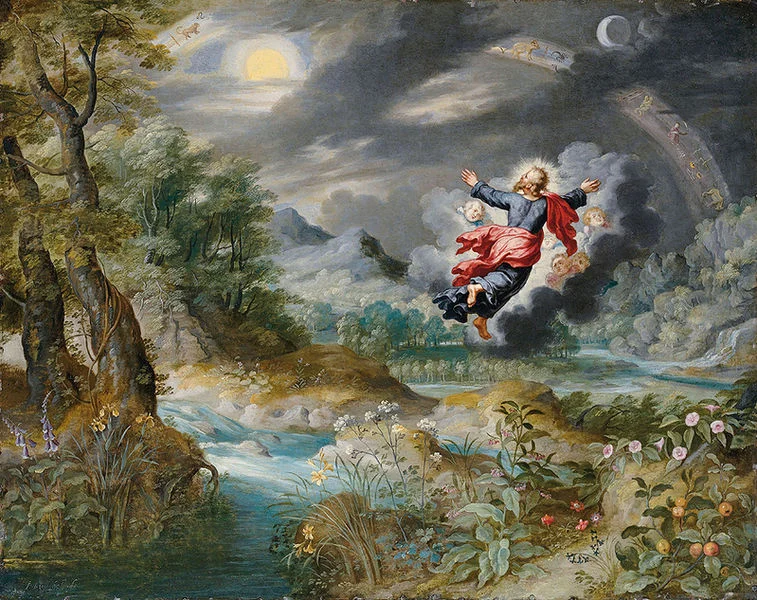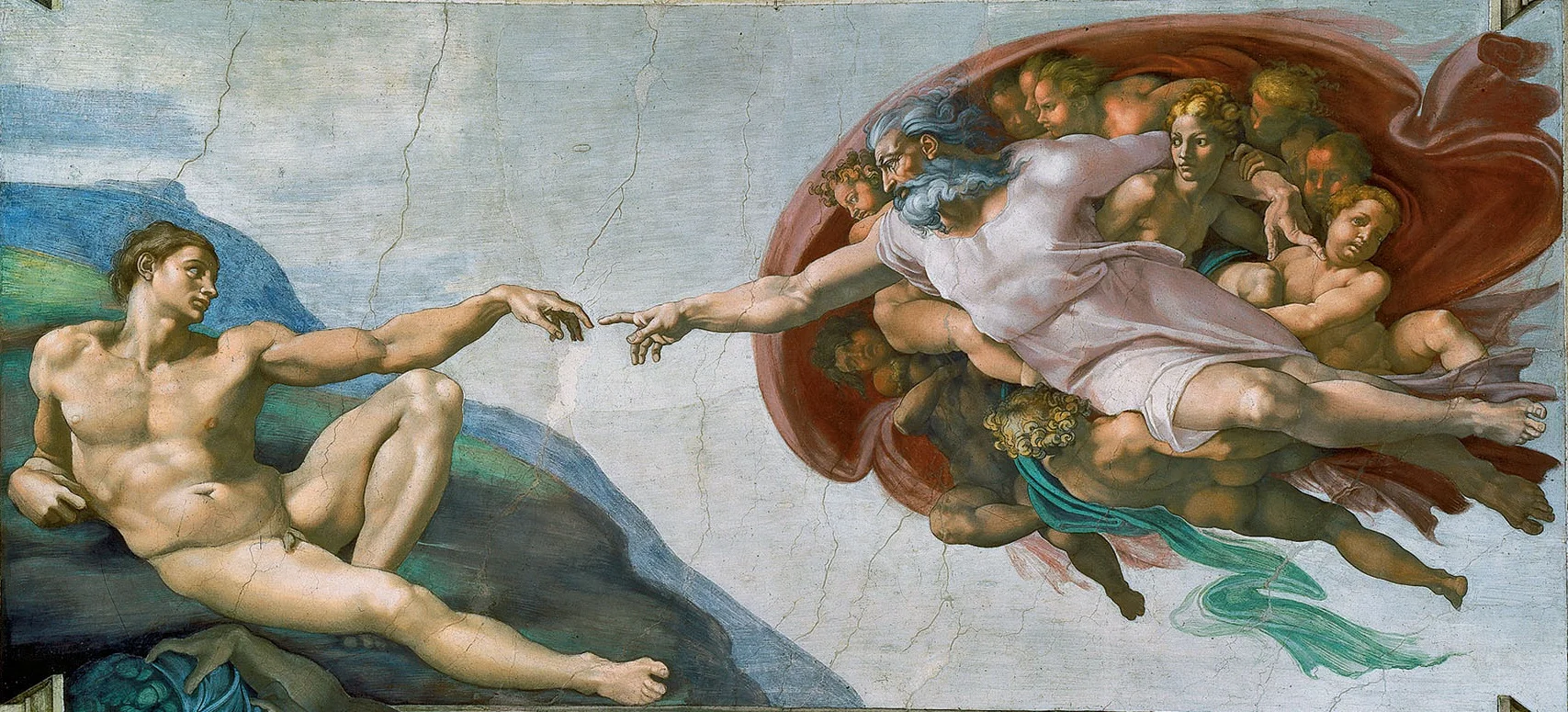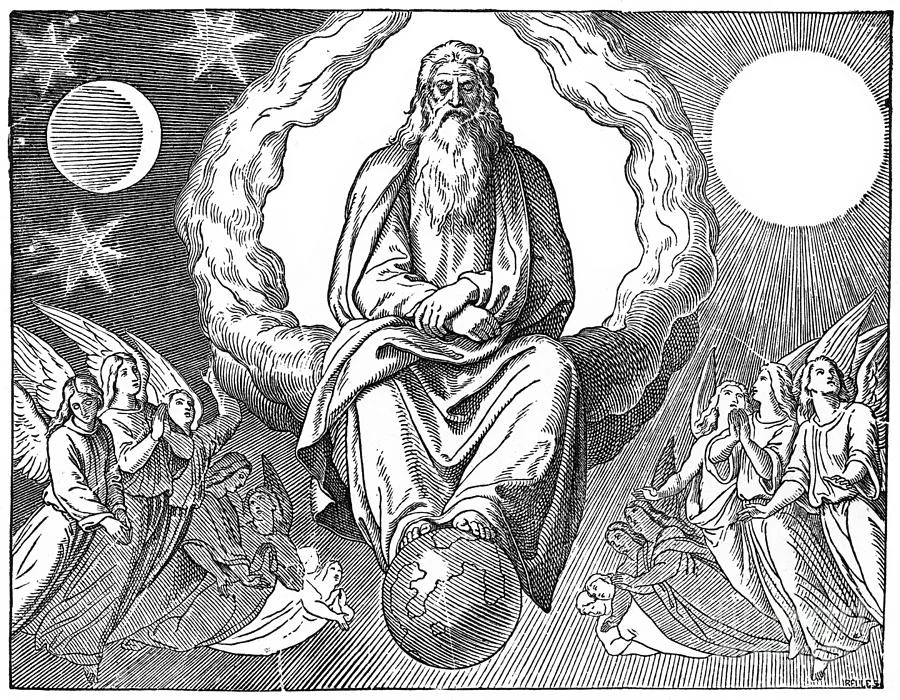The Ecology of Pink Floyd's 'The Wall': It's Genesis & Revelation -- Chapter 1 "In the Flesh?"
Serving as the beginning to The Wall, In the Flesh? acts in medias res, or in the midst of the narrative of the album ("In Medias Res"). The character of Pink is fully inhabited in his dictatorial nature as 'The Wall' builder. He speaks to his audience in a belittling manner in an attempt at controlling both them and the persona that he has made for himself.
The lyrics of In the Flesh:
In the Flesh?
1 So ya
2 Thought ya
3 Might like to go to the show
4 To feel the warm thrill of confusion
5 That space cadet glow
6 Tell me is something eluding you, sunshine?
7 Is this not what you expected to see?
8 If you want to find out what's behind these cold eyes
9 You'll just have to claw your way through this disguise
10 Lights, turn on the sound effects, action
11 Drop it, drop it on 'em, drop it on them
In the Flesh is a short song, but it contains an abundance of what the album is. It begins with a challenge for the Creative, for Pink, and for us. Lines 1-5 states, "So ya, Thought ya, Might like to go to the show, To feel the warm thrill of confusion, That space cadet glow."
The book of Genesis in the Bible contains a story of the two brothers Jacob and Esau. Their story boils down to the conflict of the birthright of the first born. Esau was the first born, who would have received and inherited all the blessings of their father, but Jacob, the younger brother, by disguising himself as the elder stole this away from Esau. Merriam Webster defines usurp as an "action of seizing possession of something without the right to it." After usurping his older brother, Jacob ran away in fear of his life.
His decision led to a life of struggle.
"Jacob Wrestling with the Angel" by Alexander Louis Leloir
Years later, after Jacob had spent a lifetime away from his brother Esau, it was planned that he would reunite with him. The night before he wrestled with this decision.
It's written in Genesis, "So Jacob was left alone, and a man wrestled with him till day-break. When the man saw that he could not overpower him, he touched the socket of Jacob's hip so that his hip was wrenched as he wrestled with the man. The the man said, 'Let me go, for it is daybreak.'" (Gen.32.24-26)
"Jacob Wrestling with the Angel" by Gustave Dore
"But Jacob replied, 'I will not let you go unless you bless me.' The man asked him, 'What is your name?' 'Jacob,' he answered. Then the man said, 'Your name will no longer be Jacob, but Israel, because you have struggled with God and with men and have overcome.'" (Gen. 32.26-28)
Jacob was good at asking for what he wanted. And it seems that he learned that he got his desires through his struggle. It is In the Flesh with that curios question mark, ?, where the Creative can learn that only through being truly human, or 'in the flesh', will he find the answers that he is looking for.
"So ya, Thought ya, Might like to go to the show" (lines 1-3), represents the idea of coming in to being as a Creative. The 'show' is the work that needs to be done. The idea that beacons the Creative to beget it into existence.
The biggest sin that a man can commit is to deny his own nature. When the Creative denies his dreams he hides from himself and he hides from God.
It has been said, "The journey is more important than the end or the start" (Brad Deleson), and it is the journey of the 'show' when the Creative chooses to begin his work. The 'warm thrill of confusion', eluded to in the line 4, is the beginning of the journey --the commencement of the struggle.
Moses killing the Egyptian.
After Jacob had been named Israel, he and his descendants faced a famine and end up in the kingdom of Egypt. Where years after Jacob's death, his people, God's people, Israel become enslaved there.
Moses, a man of Israeli heritage who had been adopted by Pharaoh the leader of Egypt, was walking amongst the kingdom when he realized that was more like the slaves then the enslavers.
"One day, after Moses had grown up, he went out to where his own people were and watched them at their hard labor. He saw an Egyptian beating a Hebrew, one of his own people. Looking this way and that and seeing no one, he killed the Egyptian and hid him in the sand" (Ex. 2.11-12).
"To feel the warm thrill of confusion, That space cadet glow" (lines 4-5).
That 'warm thrill of confusion' is seen as the unknown that occurs after the Creative finishes a piece of work. The tension of the struggle is eased as he basks in his 'space cadet glow'. But, that's only for a time. How long can that really last before the judgement comes?
It all changed for Moses. "The next day he went out and saw two Hebrews fighting. He asked the one in the wrong, 'Why are you hitting your fellow Hebrew?' The man said, 'Who made you ruler and judge over us? Are you thinking of killing me as you killed the Egyptian?' Then Moses was afraid and thought, 'What I did must have become known.' When Pharaoh heard of this, he tried to kill Moses, but Moses fled from Pharaoh and went to live in Midian, where he sat down by a well" (Ex. 2. 13-15).
The judgment came for Moses and he fled from it. When the criticism comes for the Creative what does he do? He builds walls around himself and his heart.
"Tell me is something eluding you, sunshine?, Is this not what you expected to see?" (lines 6-7).
The Creative can get confused when life isn't merry after he has finished. Something 'eludes. him. It is not 'what he expected to see?'
To be 'in the flesh' as a creator the Creative must realize the ebbs and flows of creativity. He must see the beginning and the end.
God creating the Sun, the Moon and the Stars by Jan Brueghel the Younger
The first chapter of Genesis tells the story of God creating the world. "In the beginning God created the heavens and the earth...And God said, 'Let there be light,' and there was light...And God said, 'Let there be an expanse between the waters to separate water from water'...And it so. God called the expanse 'sky'...And God said, "Let the water under the sky be gathered into one place, and let dry ground appear'...Then God said, 'Let the land produce vegetation'...And God said, 'Let there be lights in the expanse of the sky to separate the day from the night, and let them serve as signs to mark seasons and days and years...And God said, 'Let the water teem with living creatures, and let birds fly above the earth across the expanse of the sky...And God said, 'Let the land produce living creatures according to their kinds: live-stock, creatures that move along the ground, and wild animals, each according to its kind' (Gen. 1. 1,3,6-9, 11, 14, 20, 24, 26).
Creation of Adam by Michelangelo.
"Then God said, 'Let us make man in our image, in our likeness, and let them rule over the fish of the sea and the birds of the air, over the livestock, over all the earth and over all the creatures that move along the ground. So God created man in his own image, in the image of God he created him; male and female he created them" (Gen. 1. 26-27).
God Resting On 7th Day by Granger
"By the seventh day God had finished the work he had been doing; so on the seventh day he rested from all his work. And God blessed the seventh day and made it holy, because on it he rested from all the work of creating that he had done" (Gen. 2. 2-3).
Seven times did God call what he made good. Genesis verses 4, 10, 12, 18, 21, and 25 all call his work 'good'. And in verse 31, what he did was "very good".
How can this be contrasted by the state of mind of the Creative. She can receive compliments for her work, but how often does she sit back and call her own art good or even worthy of the effort that was required to make it?
Let alone rest in it as God did.
Instead the creative rejects the love that he so much needs and says, "If you want to find out what's behind these cold eyes, You'll just have to claw your way through this disguise" (lines 8-9).
When he should rather rest in the completion of his work. A finished work is enough of a reward. It's a world to begin again in.
As In the Flesh? ends, "Lights, turn on the sound effects, action, Drop it, drop it on 'em, drop it on them" (lines 10-11); so should the Creative begin again and not hide behind those 'cold eyes' or his 'disguise'.
But, instead it is after the first creation does 'The Wall' begin to be built.
- Dan
Works Cited
Deleson, Brad., et al. "Enth E Nd." Reanimation. Warner Bros, 2002. Mp3 file.
"In Medias Res." Merriam-Webster.com. Merriam-Webster, n.d. Web. 16 Apr. 2018.
Pink Floyd. "In the Flesh?" The Wall. Harvest, Columbia, 1979. CD
"Usurp." Merriam-Webster.com. Merriam-Webster, n.d. Web. 15 Apr. 2018.
The Holy Bible. Trans. Ronald Youngblood et al. Grand Rapids: Zondervan, 1984. Print. New Intl. Vers.

